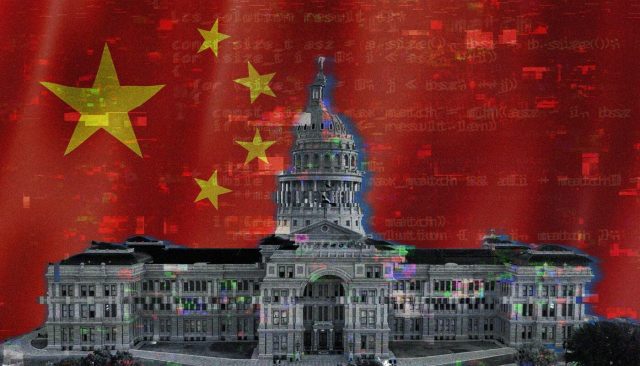Confronting “Ideological Terrorism” and Hostile Influences on Western Institutions: Challenges and Dilemmas in Preserving the Values of Liberty.
By Moshe Sporn
Throughout history, democracies have grappled with an inherent dilemma: how to preserve the moral values and free principles upon which they are founded while simultaneously addressing internal and external threats that challenge their very foundations.
The 21stcentury has presented democracies with an unprecedented challenge: can they remain committed to liberal values while authoritarian adversaries exploit structural weaknesses to advance their agendas? This question demands a natural continuation: what changes and insights are required to ensure the survival of democracies in a rapidly evolving world? We have witnessed the West’s failure to prevent the rise of radical forces in Iran and compared this to similar historical events, such as the policy of appeasement toward Nazi Germany. We also have seen the structural challenges of democracies, their tendency to respond sluggishly, and the influence of political and populist considerations on decision-making.
Now what must democracies do to thrive and defend themselves against contemporary threats?
First, the question must be asked: are democracies willing to re-evaluate the boundaries of freedom of expression and information? In many Western countries, the belief that freedom of expression is an inviolable right has become central to public discourse. However, new threats do not always manifest as classic forms of propaganda but rather as more subtle tactics, such as spreading disinformation on social networks and influencing democratic elections. Here, the balance between individual liberty and societal protection becomes critical. There may be a need to develop advanced regulations to limit the ability of hostile states to use technological platforms to destabilize democratic systems. Such steps could include content monitoring and restrictions on the activities of external entities.
In this context, examples like Qatar and China highlight the challenges democracies face. Qatar invests massive financial resources in universities across the United States and Europe to influence academia and promote an extreme anti-America discourse that often portrays Western nations as enemies of universal values. China, on the other hand, operates Confucius Institutes within universities to promote soft propaganda and strengthen its ideological influence on younger generations. These actions create an environment where Western students are exposed to narratives that encourage hostility toward their own countries, undermining the foundations of democracy and liberty. It must be considered whether these actions constitute a form of “ideological terrorism.”
The ideological influence of such states can be as dangerous as physical acts of terrorism because it strikes at the heart of democratic society. Democracies may need to consider severing academic and economic ties with such countries and limiting their participation in international forums as long as they continue to promote ideologies that undermine the stability of Western democracies.
However, it must also be remembered that restrictions on freedom of expression pose a risk of eroding democratic legitimacy. Democracies must ensure that such regulations are implemented transparently and fairly, without infringing on fundamental rights.
Second, the role of the global economy in shaping democratic foreign policy must be reevaluated. For decades, Western democracies operated under the assumption that global trade ties would promote stability and reforms in hostile states. However, the reality on the ground suggests otherwise. Countries like China and Russia have exploited the international trading system to strengthen their political and military power while continuing internal repression. The question of whether access to Western markets should be restricted for states that do not meet democratic standards becomes central. Can democracies afford to continue providing adversarial actors with the tools to strengthen their economies?
The answer may lie in establishing new economic frameworks that promote trade exclusively among democracies, encouraging reforms in other nations as a condition for participation.Furthermore, consideration must be given to how new technologies can be integrated to enhance governmental efficiency without infringing on individual rights. Artificial intelligence, for instance, can serve as a tool for analyzing threats and predicting cyberattacks. Nevertheless, concerns about data centralization and misuse of technology necessitate strict oversight mechanisms.
On a broader level, the question of democratic structure extends beyond issues of freedom of expression or trade relations to include internal decision-making mechanisms. Often,these mechanisms encourage unnecessary bureaucracy and delay critical processes.Democracies could consider adopting “fast-track legislation” mechanisms in emergencies,allowing for legislation and executive decisions within short time frames, provided they are subject to external oversight. An example of this can be seen in the emergency mechanisms employed during the COVID-19 pandemic in various countries, which demonstrated that democracies can act swiftly when circumstances demand it.Moreover, fostering stable international alliances is crucial. While organizations like NATO have provided military security to member states, there is an opportunity to expand cooperation into areas such as cybersecurity, technology, and economic coordination.
Democracies could establish new international forums focusing on developing shared strategies to address global threats. Adapting democracies to modern challenges also requires an internal look at educational and cultural systems. Without profound civic education and an understanding of democratic values, younger generations may become vulnerable to manipulation and anti-democratic narratives. Education is the key to cultivating a generation that understands the values of freedom and public responsibility and can identify the inherent threats in non-democratic systems.
The question of restricting freedom of expression and information ties directly to discussions on foreign policy and trade. Many hostile states use trade relations and Western technologies to undermine political stability in democratic nations. A reevaluation of how these relationships are managed is essential. Restricting access to markets and technological resources by imposing conditions on states that fail to respect human rights or democracy could serve as an effective lever for change.
Ultimately, the question of whether democracies can survive depends on their willingness to reevaluate the balances they have set for themselves. Can individual freedoms be protected without compromising public security? Can the principles of free trade be maintained while preventing exploitation by hostile states? The future will be determined by democracies’ ability to adapt to changing realities while preserving their core principles. But the real test lies in whether democracies can implement these changes in time, before it is too late



